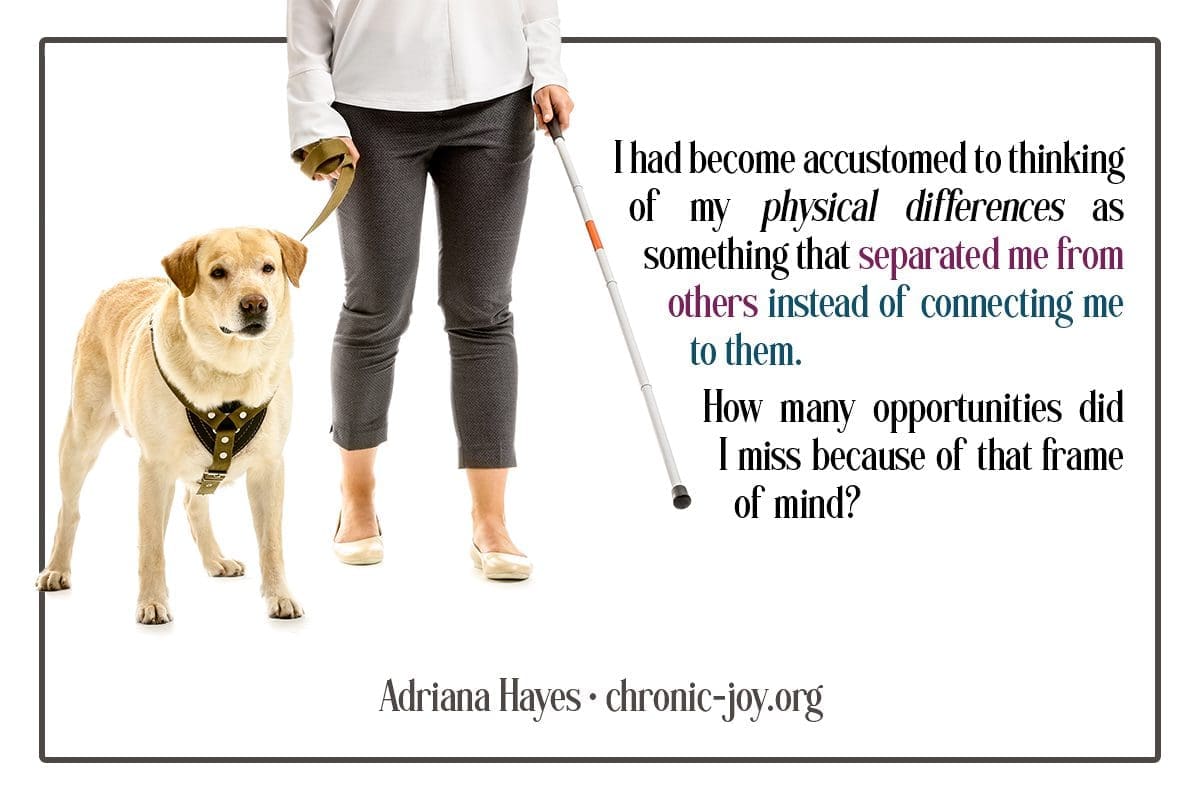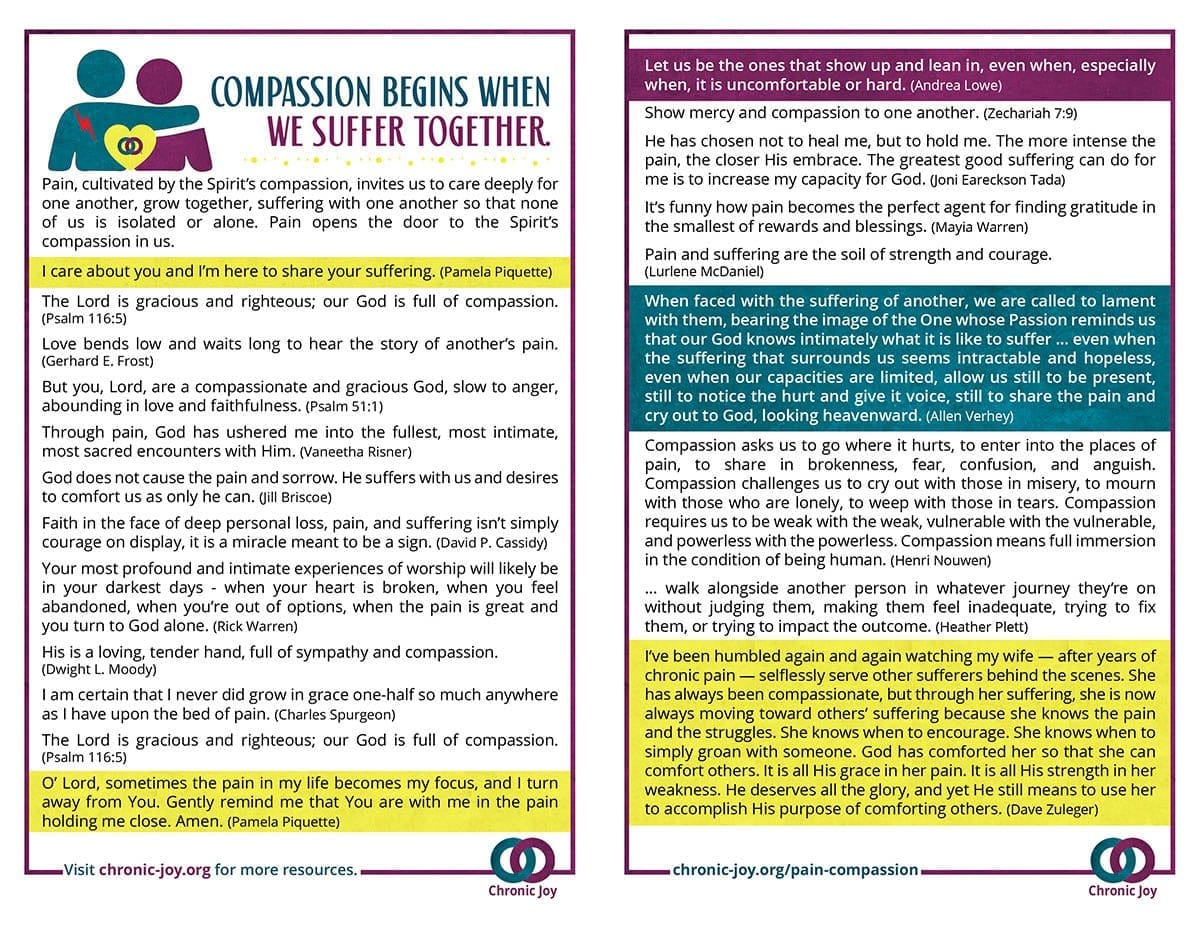
I had become accustomed to thinking of my physical differences as something that separated me from others instead of connecting me to them. How many opportunities did I miss because of that frame of mind? (Adriana Hayes)
COMPASSION AND JOY IN MY BROKENNESS
Wednesday is my favorite day to run errands. You may wonder why—and my reason may surprise you. Wednesdays are often the day of the week designated to honor in-store Senior Citizen Discounts. So, for a 32-year-old living in what feels like a 72-year-old’s body, this is a wonderful day! I can walk at my usual (read that, slow) speed through the grocery store and actually pass a person or two rather than being mowed down by the after-work millennial crowd. I receive gracious smiles from wrinkled faces and overtly generous compliments from suspender-clad men while waiting in the check-out line at Kohls.
My favorite moments from these days, however, are when I catch a twinkling eye and knowing nod as we pass by each other, each precariously leaning on the walking cane we grasp in our hand. I’ll often be asked (particularly at the post office and airport) where I managed to find such an attractive floral cane.
It’s in that moment that I find joy in my brokenness (in my chronic illness, in my disability, in my pain) because it becomes a bridge that connects my story to another person’s story. My cane and my limp make me relatable and approachable. Occasionally, they will solicit unwelcome or bizarre comments. Usually, they provide an opportunity to connect with a stranger and show them compassion in a way that I simply could not have done otherwise.
GROWING IN COMPASSION
I believe that compassion is part of my call, for the adjective compassionate describes both God and Jesus in the Bible. For example, Praise be to the God and Father of our Lord Jesus Christ, the Father of compassion and the God of all comfort, who comforts us in all our troubles so that we can comfort those in any trouble with the comfort we receive from God. (2 Corinthians 1:3-4)
For over a decade, my mind had become accustomed to thinking of my physical differences as separating me from others instead of connecting me to them. How many opportunities did I miss because of that frame of mind? Author Henri Nouwen has written: Compassion asks us to go where it hurts, to enter into the places of pain, to share in brokenness, fear, confusion, and anguish.
This past May, my husband and I became licensed foster parents in Milwaukee County. This new journey has called me to a level of compassion I would not be capable of without God. He is revealing to me that without His unending grace in my life, I could easily be the parent addicted to drugs or alcohol to numb my physical and mental pain. This revelation has grown compassion in the depths of my heart, where I didn’t know it could reach.
How do you think and feel about your differences? Let me encourage you to ask God to use them to comfort others for the glory of His Kingdom! I can promise that there is someone with whom God longs to connect you because of the exact trial you are experiencing.
First published in Just Between Us magazine. Published with permission.


Adriana Hayes
Professor, Writer, and Speaker
Adriana is a freelance illustrator, professor, writer, and speaker who finds joy in helping others discover how God can bring chronic hope into their lives. She lives in Milwaukee, Wis., with her husband, Chris, and their three daughters.

Compassion Begins When We Suffer Together
Pain, cultivated by the Spirit’s compassion, invites us to care deeply, grow together, and suffer with one another so that none of us is isolated or alone. Pain opens the door to the Spirit’s compassion in us.

Recent Comments